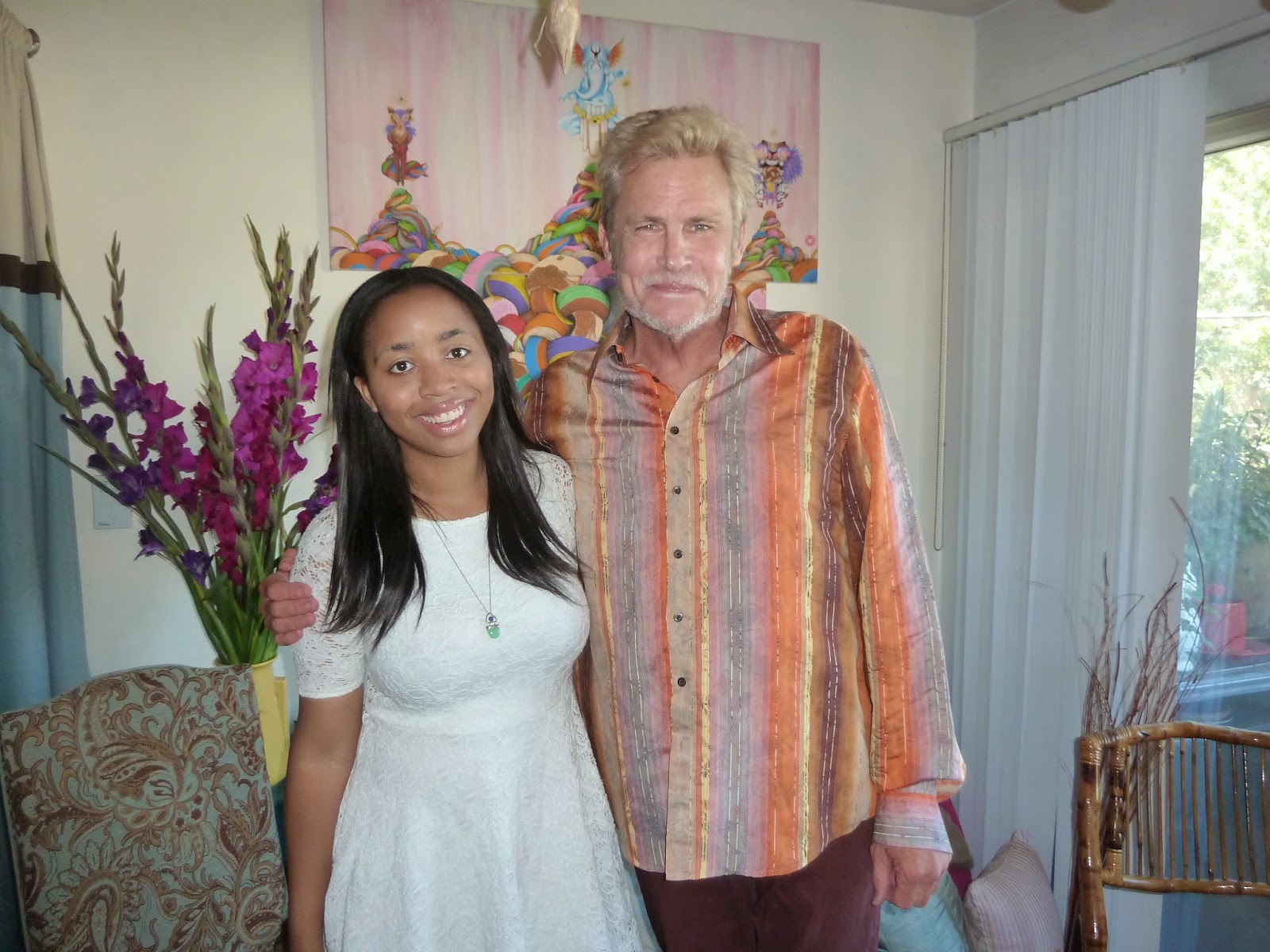GUESS WHO'S COMING TO THANKSGIVING DINNER?
I am not black.
I was a seventeen-year old,
attending Normandy High School in St.
Louis , Missouri
I remember seeing the film
with my Grandma Katie, the one relative I could trust throughout otherwise
duplicitous familial machinations. During the late Sixties, she rented a room
from a woman who lived in Ferguson ,
Missouri
I am not black.
I had met very few black
people when I went to a virtually all-white high school; it was only when I
ventured into gay bars in East St.
Louis
I knew I was gay in high
school and so did almost everyone else including a gang of bullies who—in a
militaristic maneuver between classes—captured me, threw me into one of the
gymnasium showers and kicked me as I was drenched with cold water. The event would eventually fuel the fires of my activism.
The year I graduated from
high school, poised to escape the fear and homophobia I experienced, was a year
of mythic political activity: the assassinations of
Martin Luther King and Bobby Kennedy, the Chicago
riots at the National Democratic Convention, and the student protests over the
war in Vietnam
I began to grasp the concept of Us Versus Them.
Ferguson, Missouri
On Thanksgiving, still
reeling from the Ferguson
I am not black.
About a year ago, Katherine
called me from England
It was a moment I’d been
waiting for; in spite of all the Martin Luther King parades and politically
correct children’s books; in spite of trips to Leimert Park and God-only-knows
how many African-American-centric beauty salons; after how many movie showings
(including Guess Who’s Coming To Dinner)
and how many friends I attempted to cultivate, one truth remains: Katherine was
brought up by a bunch of crackers.
And even though she’s only
twenty years old, the color of her skin is saturated with the hues of more than
two-hundred years of anti-black sentiment.
I am not black.
“But I know what discrimination
is like. I’ve lost work—I’ve virtually been blacklisted in Hollywood
Katherine insists back, “Dad, it
is not the same. It’s just not.” I take a lame stab at the marriage issues
(even I know that’s not comparable—I don’t know of any gay lynching in West Hollywood ).
I am not black.
Katherine gives me a few
articles to read which happens concurrently with a Poly Sci class I’m taking
that explores race in America ,
from the signing of the Declaration of Independence to the murder in Ferguson
Katherine and her friend (to this day) Cassady
Before we sit down to eat
on Thanksgiving, Katherine flippantly says, “Well, I guess I should be thankful
I wasn't shot by Darren Wilson.” Action; the camera is rolling—metaphorically. Wilson is the cop who shot Michael Brown—the teen who recently
graduated from Normandy
High School
Carol suggests that she
knows what discrimination is like because she was taunted as a child for being unusually
tall, having a childhood illness, and not fitting into normative boxes.
“Carol,” Katherine says,
trying to reason. “You have to stop saying that. It’s not the same. It’s not
the same as living in black skin. You cannot make those comparisons. I could
get killed for being black—do you get that?”
I am not black.
The discussion escalated. I
tried to keep my big mouth shut but did offer that I, too, felt like the perils
of my marginalization as a gay person are comparable to those of a black
person—until I really, really listened to Katherine.
“Carol, it hurts my
feelings when you say things like that,” Katherine says, walking from the
living room, out the front door.
Katherine begins to cry. Carol
begins to understand. We can’t be the only family in America exploring Ferguson
High School Graduation with Carol & Art
Carol loves no one on the
face of the Earth more than she loves Katherine. She and Art have helped raise
her—from changing diapers to navigating these changing times.
Uncle Bill, a therapist,
has always watched with intimacy and objectivity.“It’s so good that you are
able to say these things,” he assures Katherine on the evening of our family
holiday dinner.
Carol’s perception shifts.
As a new scene unfolds, I
lie down in the adjacent bedroom within earshot of Katherine and Carol enjoying
a conversation. Katherine explains how her racial identity is directly
affecting her artistic life. She is determined to address what she correctly
perceives to be a skewed vision of race in the television and film industry.
Now it’s my turn to cry,
quietly, tears of thanksgiving for my daughter (who changed her name in honor
of my grandmother) and our evolving mixed family.
I am not black.






















